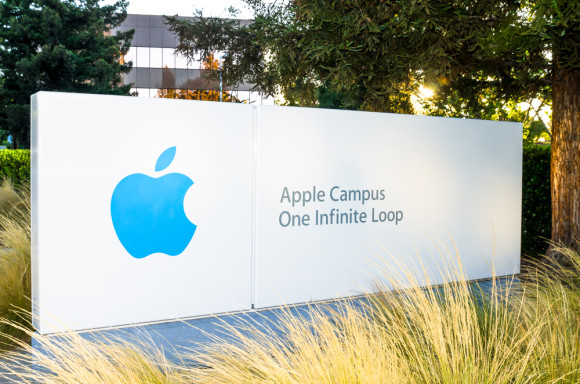The University of Wisconsin-Madison’s licensing arm is seeking $400 million from Apple Inc. for infringing the school’s patent on microprocessor technology.
The Wisconsin Alumni Research Foundation is owed that much, its lawyer told the jury after it found Apple had infringed the patent, according to a transcript of the trial. Apple’s lawyers argued the amount should be a fraction of the $110 million Intel Corp. paid in 2009 to settle an earlier dispute over the same patent.
The patent, issued in 1998, relates to the design of a processor chip to improve its performance. The Wisconsin foundation claimed that Apple was using the invention in its A7 processors for the iPhone 5s and iPad. A separate suit was filed in September claiming newer models of the iPhone also use the invention.
The federal jury in Madison found that Apple infringed the patent and rejected claims it was invalid. The case is now in the second phase, to determine how much Apple should pay. Closing arguments in the case are likely to be heard on Oct. 16.
The foundation argues that it’s entitled to about $2.74 for each device, which it said is based on the contribution to the value of Apple’s integrated circuits. Apple contends the figure is closer to the 7 cents per unit that Intel paid.
The Intel settlement was based on 1.5 billion processors sold while Apple has sold 150 million, Apple’s lawyer, William Lee of WilmerHale, told the jury. The partial transcript doesn’t include the exact amount Apple contends is fair.
Significant Advancement
The university claimed that its invention marked a significant advancement in chip design to increase speed and efficiency. Apple argued that it was one of about 70 that covered the specific technology to select the order of processing, including one the iPhone maker received.
Apple asked the U.S. Patent and Trademark Office to review the patent. The agency in April denied that request, saying the Cupertino, California-based company hadn’t shown it was likely to win the challenge.
The Wisconsin foundation, which gets licensing fees for things like drug, plant and computer research, received $178 million in income from 2012 to 2014, according to a survey of schools by the Association of University Technology Managers. Some of the money is returned to the inventors, who can be faculty, staff or students at the Madison campus.
The case is Wisconsin Alumni Research Foundation v. Apple Inc., 14-62, U.S. District Court for the Western District of Wisconsin (Madison).
Related:
Was this article valuable?
Here are more articles you may enjoy.



 Florida’s Commercial Clearinghouse Bill Stirring Up Concerns for Brokers, Regulators
Florida’s Commercial Clearinghouse Bill Stirring Up Concerns for Brokers, Regulators  Florida Insurance Costs 14.5% Lower Than Without Reforms, Report Finds
Florida Insurance Costs 14.5% Lower Than Without Reforms, Report Finds  Insurance Broker Stocks Sink as AI App Sparks Disruption Fears
Insurance Broker Stocks Sink as AI App Sparks Disruption Fears  Insurify Starts App With ChatGPT to Allow Consumers to Shop for Insurance
Insurify Starts App With ChatGPT to Allow Consumers to Shop for Insurance 

